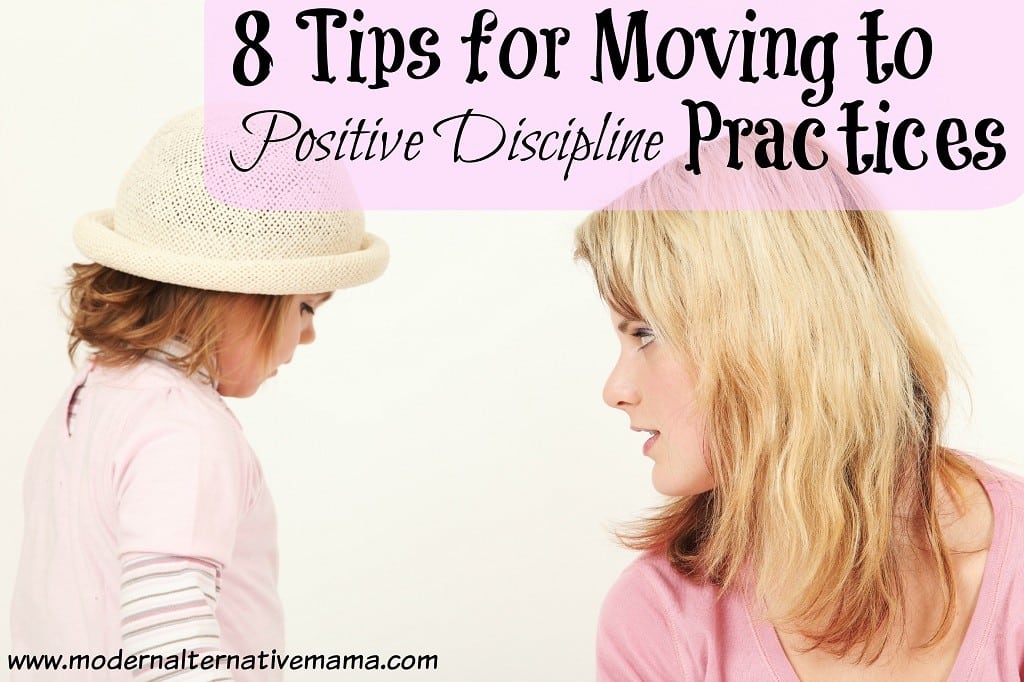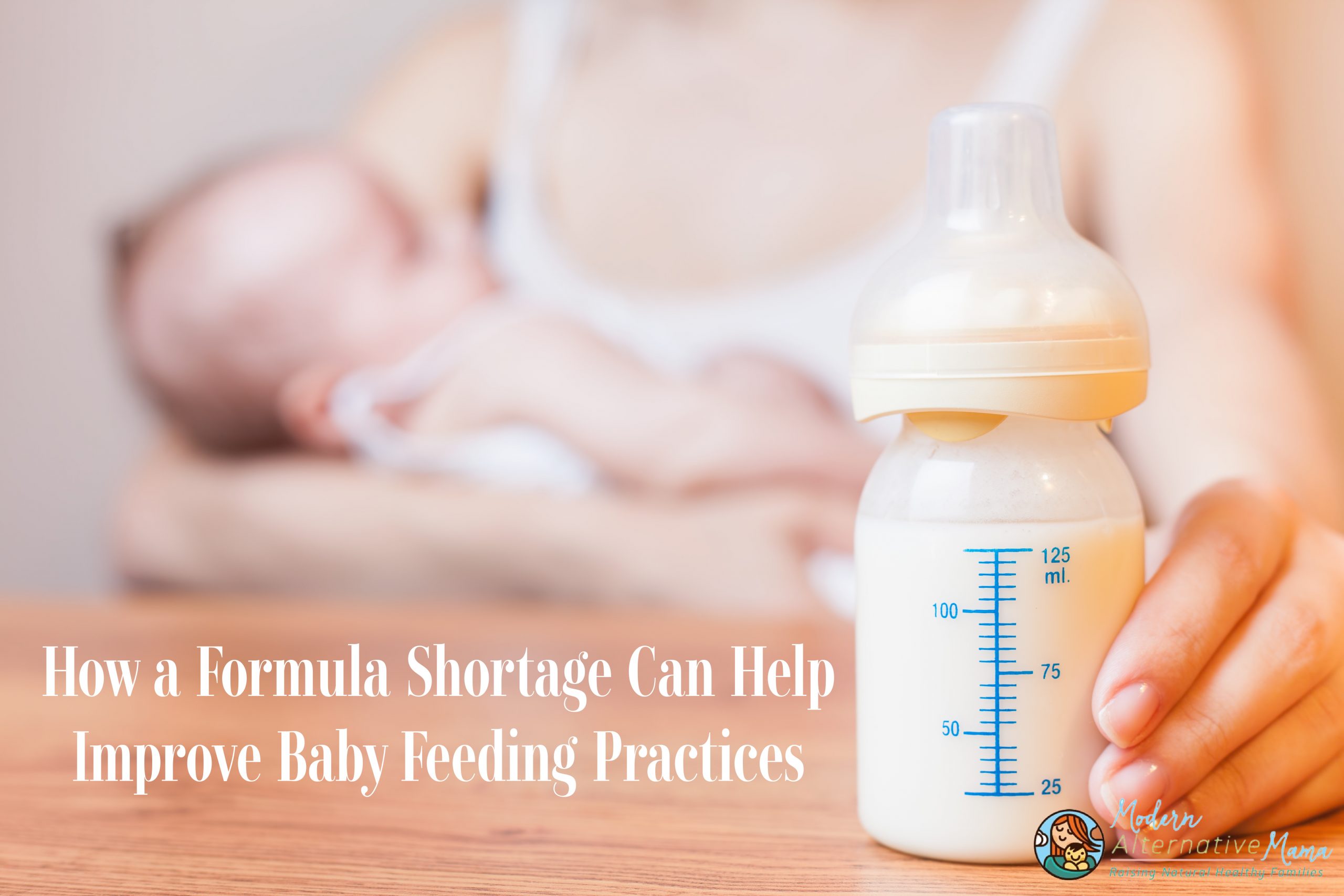It’s been well over 4 years since I first started exploring, and writing about, positive discipline. My first two posts on it were in the spring of 2011, and they were Why We Don’t Want to Spank Anymore, and Moving Towards Positive Discipline.
Since then, I’ve written Gentle Parenting Raises Good Kids, Too (on why I think parents should re-consider spanking), and When Your Child Runs in the Street (my answer to parents who say they almost never spank, “except if my kid runs in the street or something really bad”). Plus, the ever-popular 9 Examples of Positive Discipline, because many parents who are interested in positive discipline need to see how it works in a very practical sense.
After more than 4 years of exploring this type of parenting, and having 3 more babies, I can say it’s pretty much second-nature to me now. And, we’ve reaped immense benefits from it. All the kids are calmer and happier (so are we!) and tend to listen better — especially the younger ones.
But, the process? It’s not easy. There are usually a whole lot of habits to break, for both parents and children. The kids go through a phase, that can last weeks or months, where they “test” you — “will you really not hit me if I act like this?” They’re used to an external punishment to remind them to ‘be good,’ and they’re transitioning to an internal moral compass to guide their behavior instead (along with some natural, non-physical consequences where needed).
Now that I’m on the other side of the process, I’m sharing some ideas with you on how you, too, can move from a punitive model to more positive discipline.
8 Tips for Moving to Positive Discipline Practices
1) Read everything you can
One of the very most helpful things, to me, is and was reading everything I could find on positive discipline. It took quite awhile for me to fully understand the goals. I, too, used to fall into the trap that “sometimes spanking is just necessary.” Even after I was pretty much on board with it. It really takes a lot of time to change your mindset, and reading several articles is a great place to start. And, if you’re having a frustrating day, if you mess up, reading more can remind you of what your new goals are and help you stay on track. I often read articles when I was in a bad mood and yelling at my kids because it helped me to reset and try again.
Some good resources:
Look for anything that says “peaceful parenting,” or “gentle parenting.” Avoid those that are “permissive parenting” — there’s a huge difference. Permissive parenting allows a child to do whatever they want; peaceful parenting enforces firm but gentle boundaries that surround others’ rights and property rights. (i.e. “I won’t let you hit me,” or “I won’t let you break that” enforced by removing a child from the situation.)
2) Talk to friends who already practice positive discipline; watch them in action
Sometimes all the reading in the world doesn’t help — you need to see it in action. Talk to some friends about their disciplinary approaches, and when you find one who matches your new goals, ask if you can come and watch them. Ask what they’d do it their child _____. Observe them. Discuss positive parenting theories and get new ideas. Being surrounded by people who think the same way is really beneficial when you are just learning a new way!
3) Set a clear boundary — for yourself
There will be days — lots of them — when you are at your wit’s end, and want to just spank your child so they will listen already. Especially during that adjustment period when they are seriously testing you!
Set a clear boundary for yourself. “I will not spank, no matter what.” And don’t. If you yell, if you cry, if the house ends up a disaster temporarily — so be it. Reset, try again tomorrow. This does not last. But, if you don’t have that boundary in place, you are back at square one tomorrow.
4) Replace specific consequences with new consequences
This is probably the most important thing. “What am I going to do instead of spanking, if my child ____?” Having a specific, detailed plan will help you to stick to your boundary because you will have the tools to cope with the situation.
These are some very brief examples:
- If your child hits — remove your child from the situation and say “I won’t let you hit, that hurts others, we use gentle hands.” If it continues, hold them on your lap or take them home. (Most kids hit if overwhelmed by a situation, and may be tired or hungry.)
- If your child throws — take away the object that was thrown, and say “We keep our toys on the ground, they could break if we throw.”
- If your child refuses to listen — go pick him/her up and do what needs to be done (get shoes on, walk out the door, clean up toys together, etc.).
There is a simple, natural consequence for most actions. And, ask yourself, do I need to react to this? If you say something to your child and s/he snaps at you, punishment is not in order. Do you snap at your child unfairly sometimes? They will make the same mistake. Expect your child to be human and just overlook some things.
(Obviously, we never overlook destruction of property, harming others, or downright nastiness. We do ignore frustrated sighs, eye rolls, tantrums, and other signs of someone having a bad day. At least as far as ‘discipline’ is concerned — you can’t teach someone not to have a hard time and not to express it, and you shouldn’t even want to. People need an outlet.)
5) Constantly re-examine and check yourself
As you’re reacting to your child in new ways, be examining yourself — “Did I do this right? Is this how I would have wanted someone to react to me if I did wrong? Would I have been okay with someone else observing me doing that?” I like to pretend that people whose opinions I respect are watching when I’m dealing with a very frustrating situation, and wonder what they advice they would offer, and how they would judge the way that I handled it. I find this helpful because it is not easy to respond positively all the time!
6) Be willing to take a timeout
Just like kids sometimes need a break from the action, so do adults. If you’re struggling to respond to your child appropriately, or even feel yourself getting angry, yelling, or about to step over the boundary you’ve drawn for yourself, take a timeout. Turn the TV on for the kids and step into the bathroom or your bedroom, or another nearby location where you can still hear your children, but are somewhat separated. If another adult is present, then go take a bath, or just go out for awhile, and ask the other person to take over. It’s easier to breathe for a few minutes and then come back than to get pushed too far and lose it. Much better for all involved, too.
7) Remember nobody’s perfect
Your child is going to mess up. Not every one of those times is a “discipline issue.”
One of mine strongly dislikes being interrupted in the middle of a game or project and will scream and cry. As long as it’s only expressing strong emotion, we let it be. (If it turns to insults or trying to hurt people, obviously we address that.)
8) Give yourself time
This isn’t something that changes overnight. You don’t wake up one morning and say “I’m going to be a positive parent from now on,” and just do it. It takes weeks or months to change your mindset and replace old behaviors with new behaviors (for you and your child — remember that, you’re learning a new way and you’re going to mess up just as much as your child). I felt very uncertain about a lot of it for a good year or so. Then I began to feel more and more confident over time, and now it’s basically second-nature to respond the way I want to — at least most of the time. (I still have bad days, like everyone else.)
Give yourself the time and grace to mess up. Apologize to your child if you need to. Tell them you will do better. Ask them to help you. You can do this, and it is worth it. I promise.








I am particularly fond of “How to talk so kids will listen”, by Faber & Mazlish (http://www.amazon.com.br/How-Talk-Kids-Will-Listen/dp/1451663889). Lots of practical examples and exercises. Also, the book has a summary at the end of each chapter that I find very useful (I have a printed copy of those on my fridge door as a reminder).
I really love this idea, and both my husband and I have really tried many of these principles over the past year. I am a therapist, so in a lot of ways, it comes naturally to me to use simple phrases with my 3.5 year old about being kind to others, expressing feelings, and coping with anger in healthy ways. As our son gets older, this has just not been successful for us, and we have resorted to spanking because we don’t know how else to stop it. When we set firm limits with him, he continues to do the thing we are asking him to stop doing. In response, if we pick him up to take away from the situation, he will begin kicking/screaming/crying, and trying to get away from us to go back to what he was doing (or wants to be doing instead). This becomes a power struggle in itself, and the only way to remove him from the situation is to restrain him (which we won’t do).
In these situations, he does not seem to view us as people that he needs to listen to. I think much of this is related to his temperament, as he has always been strong-willed, active, and curious – always getting into everything, breaking things (not because he’s mad, but because he’s interested in how it works and how he can make the item do something it was never meant to do! All day long, I am gently redirecting him (“Soft hands with your brother, that is too rough.” ” Please stop pouring that bottle of soap into the bathtub.” “We need to be kind to the cat. It makes him mad when you pull his tail.” ), and he just continues doing what he’s doing and ignoring attempts to redirect him. If I get down on his level and try to make eye contact with him while redirecting him (to avoid giving him passive instructions from across the room), he will push my hands out of the way, start raising his voice at me (“No, Mama!), and thus begins the cycle again of attempting to remove him from the situation, and ultimately ends in a spanking because that is the only way to make the behavior stop (and even then, spanking is often ineffective with him). We have another son who is younger than him, and I can already tell he is an easier child than our older child. I’m not necessarily asking you for answers (although I am certainly open to feedback), but I just wanted to comment here on our experience with gentle parenting. I am interested in checking back to see if others comment about their experiences and learning from them, too. Thanks.